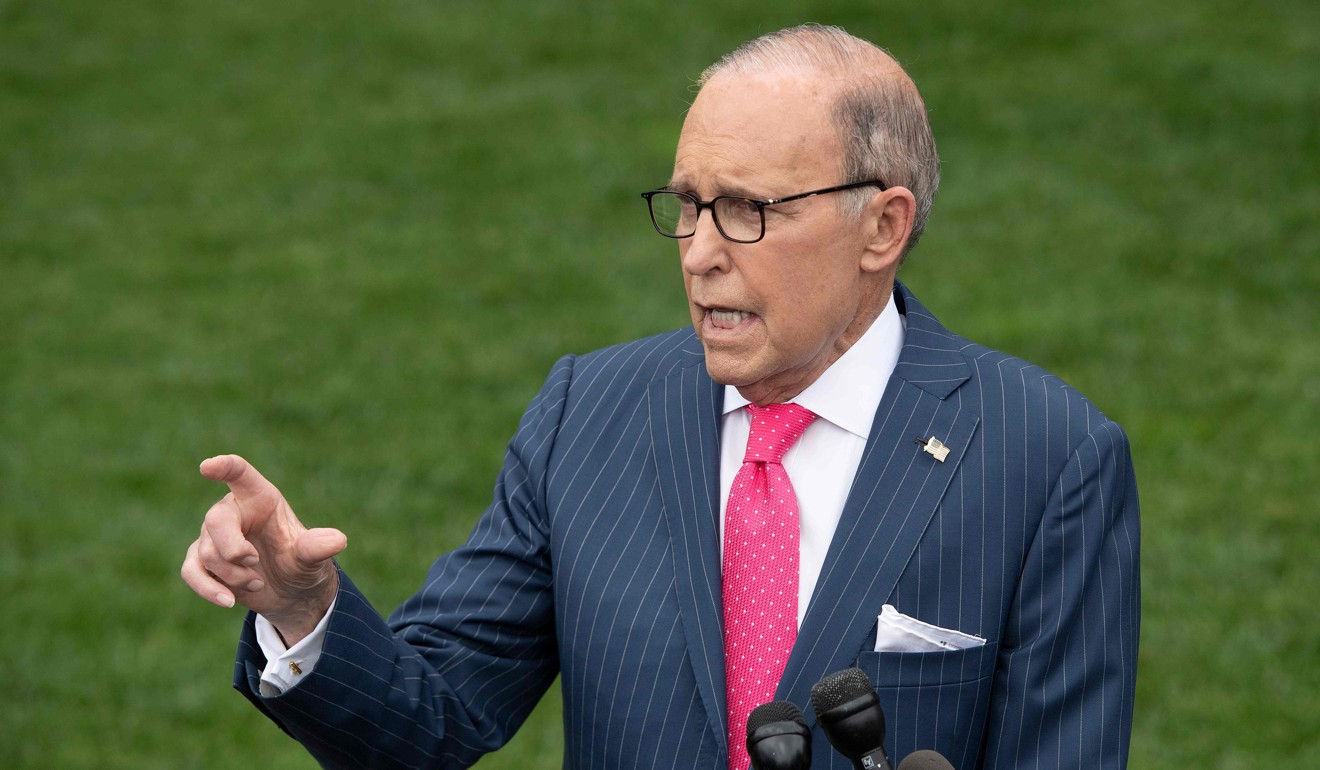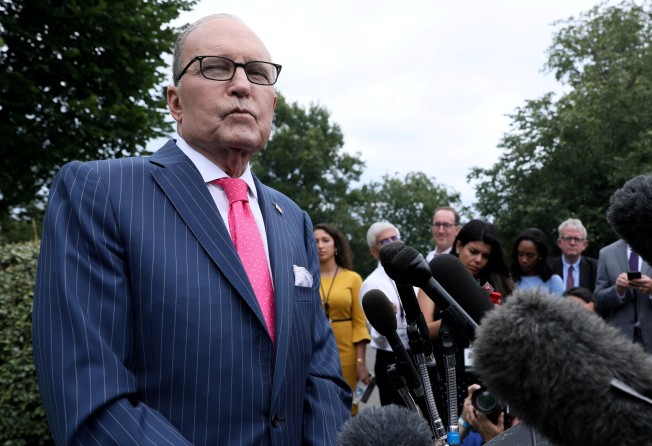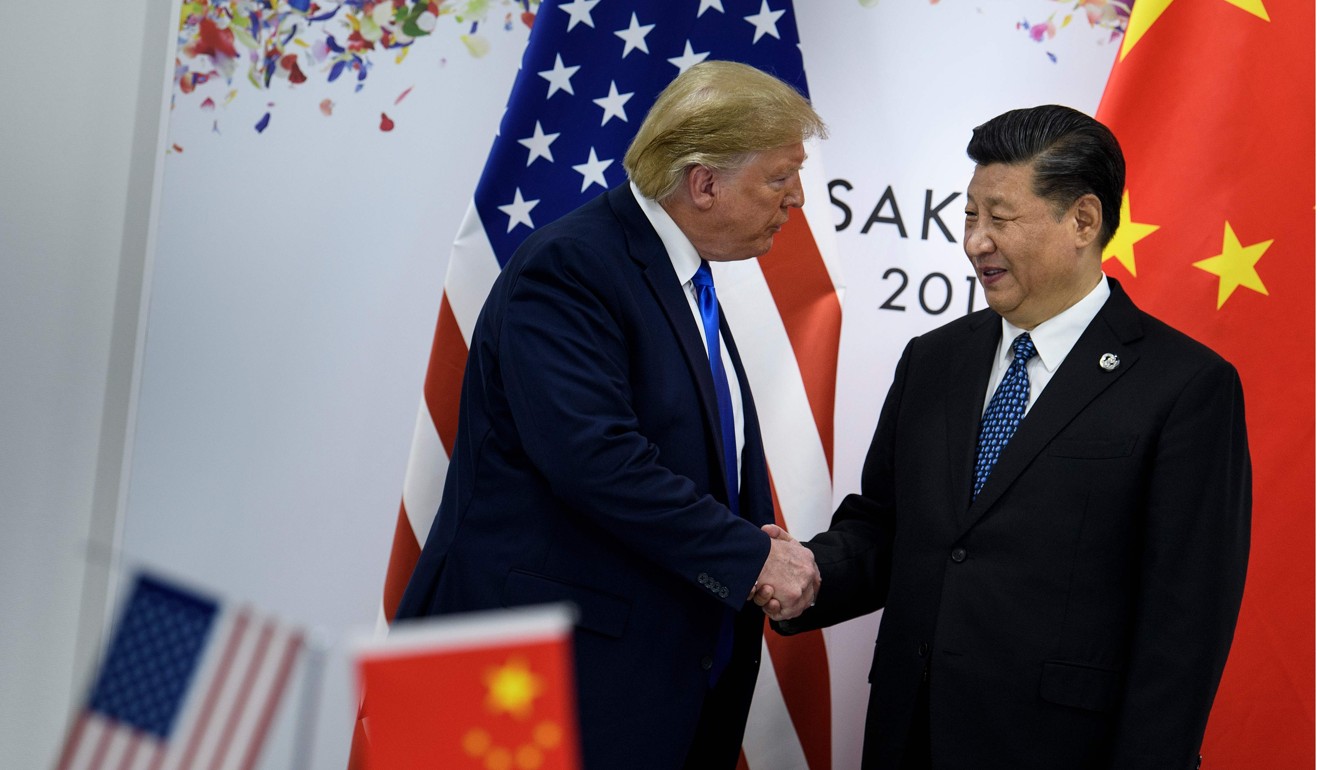
‘It’s tough’: US and China struggling with last few issues in trade talks, says White House economy adviser Larry Kudlow
- ‘There is no time limit on China. There is no speed. We want a good deal,’ he said

This story is published in a content partnership with POLITICO. It was originally reported by Doug Palmer on politico.com on July 9, 2019.
The United States and China may never be able to reach a trade deal because of the difficulty in resolving the relatively few remaining issues on the table, a top US official said on Tuesday.
During an interview at CNBC’s Capital Exchange event in Washington, White House chief economic adviser Larry Kudlow said he was an optimist by nature and still believed a deal was possible. But he used a football analogy involving his favourite team to illustrate the potential for the Trump administration to fall short.
“It’s like being on the seven-yard line at a football game,” Kudlow said. “And as a long suffering New York Giants fan, they could be on the seven and they never get the ball to the end zone.”
“When you get down to the last 10 per cent, seven-yard line, it’s tough,” he added, referring to the negotiations.

Despite such hurdles, President Donald Trump told his advisers on Monday that he wanted a deal and he believed President Xi Jinping wanted one too, Kudlow said.
Lead negotiators also spoke by phone on Tuesday for the first time since the G20 leaders’ summit in Osaka, Japan on June 29, when Trump and Xi agreed to resume negotiations.
“Both sides will continue these talks as appropriate,” a US official said in a short statement after the call involving US Trade Representative Robert Lighthizer, Treasury Secretary Steven Mnuchin, Vice Premier Liu He and Commerce Minister Zhong Shan.
The most important thing is that the two sides are talking again after a hiatus of almost two months, Kudlow stressed.
In contrast to the administration’s hope that Congress will quickly approve the USMCA, “China will take longer,” Kudlow said. “There is no time limit on China. There is no speed. We want a good deal.”
Talks between the two countries broke down in early May, after the United States accused China of backsliding on commitments it made related to changing various laws to satisfy the US demands.
“Our team, time and again, asked for the change in Chinese laws and resistance mounted on that point,” Kudlow said. “They seem to believe that the State Security Council, or the Politburo, can promulgate regulations and that would be sufficient. We don’t agree.”
China also backed away from commitments it made involving monitoring and enforcement of the pact, Kudlow said. “Without going into details, we thought we had agreement on certain issues and monitoring and that turned out not to be the case,” he said.
Now, “various power centres” in China are pushing for what they describe as a “fair and equitable agreement”, Kudlow said. “I understand that. But we have a very unbalanced trading relationship with them. Consequently, in our view, we would like to see remedies and correctives on a number of fronts.”
Kudlow also reiterated the president’s expectation that China would quickly begin making major purchases of US agricultural products while the talks resume.
“Soybeans, wheat and energy, possibly. That’s very, very important,” Kudlow said. However, no such sales have been reported in the 10 days since Xi and Trump agreed to restart talks.

Kudlow and Commerce Secretary Wilbur Ross also clarified statements Trump made in Osaka regarding the ability of US companies to continue making sales to Chinese telecommunications giant Huawei after the firm was put on a US trade blacklist because of national security concerns.
In a speech at the Bureau of Industry and Security’s annual conference, Ross said the administration will allow US companies to engage in transactions with Huawei as long as there’s no threat to national security.
“Huawei itself remains on the entity list and the announcement does not change the scope of items requiring licence from the Commerce Department nor the presumption of denial,” Ross said
Kudlow, speaking at the CNBC event, emphasised there still would be no US government purchases of Huawei parts, components or systems.
“But with respect to the private markets – I call it general merchandise – we’ve opened the door, relaxed a bit, the licensing requirements from the Commerce Department where there are no national security influences or consequences,” Kudlow said.
That means US semiconductor companies could sell chips to Huawei that the Chinese company would otherwise be able to source from other countries such as South Korea, Taiwan and Vietnam, Kudlow said.
But US companies would still be banned from doing any business with Huawei that would help it build 5G cellular networks, he said.